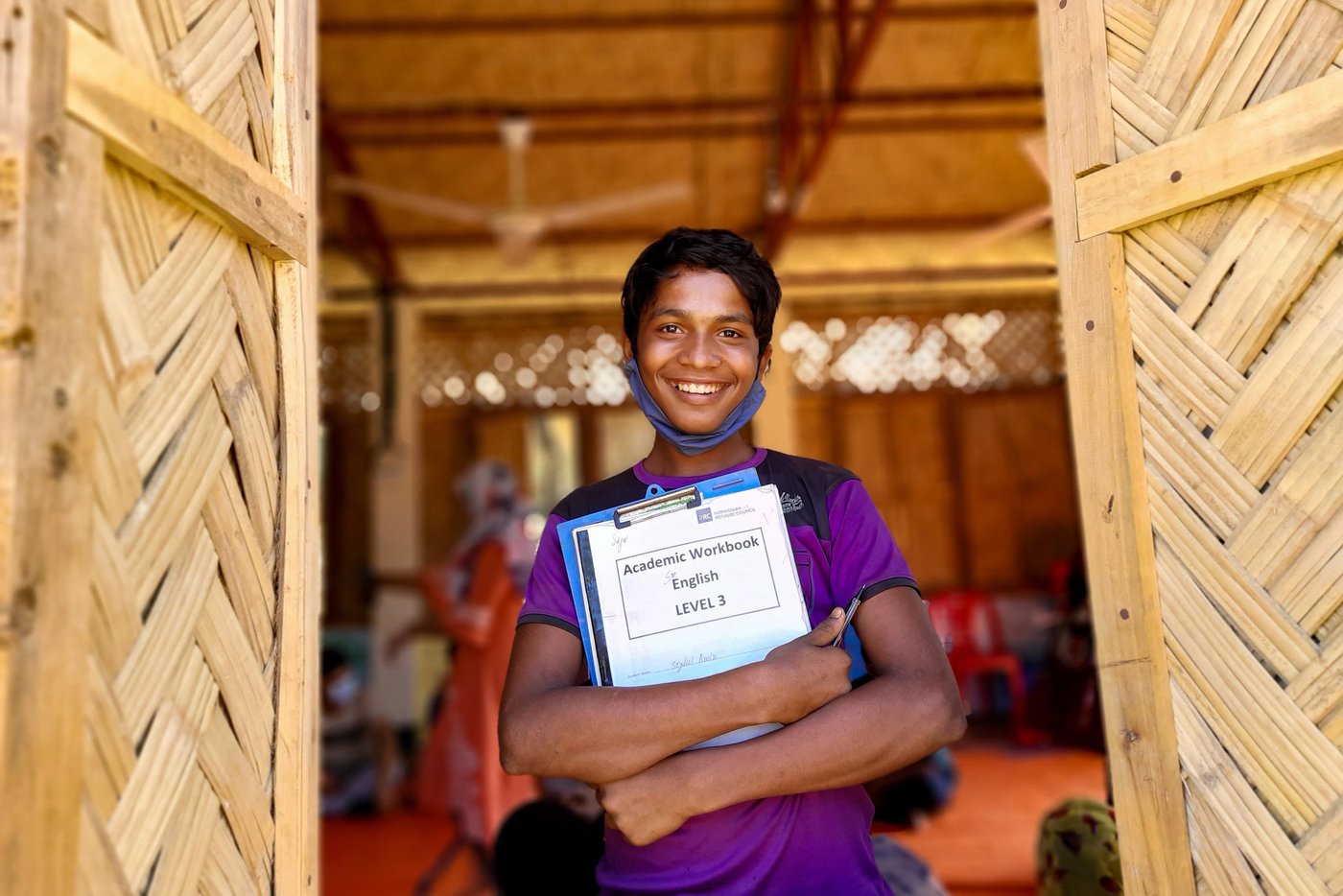For Momen, our learning centre is an escape from the uncertainties of life. Six days a week, he joins his peers in learning mathematics, Burmese, and his favourite subject: English. “Now, I can properly express my feelings to you [aid workers] and share what I want!” he exclaims.
Learning fuels hope
Since the Rohingya are not legally recognised as refugees in Bangladesh, they cannot attend traditional schools. Formal education remains unreachable for many of the 450,000 Rohingya children and young people in the camps. Protracted displacement coupled with the Covid-19 pandemic has made access to education even more challenging. Supported by the Norwegian Ministry of Foreign Affairs (NMFA), Education Cannot Wait (ECW), and the EU Humanitarian Fund (ECHO), our learning centres provide glimmers of hope.
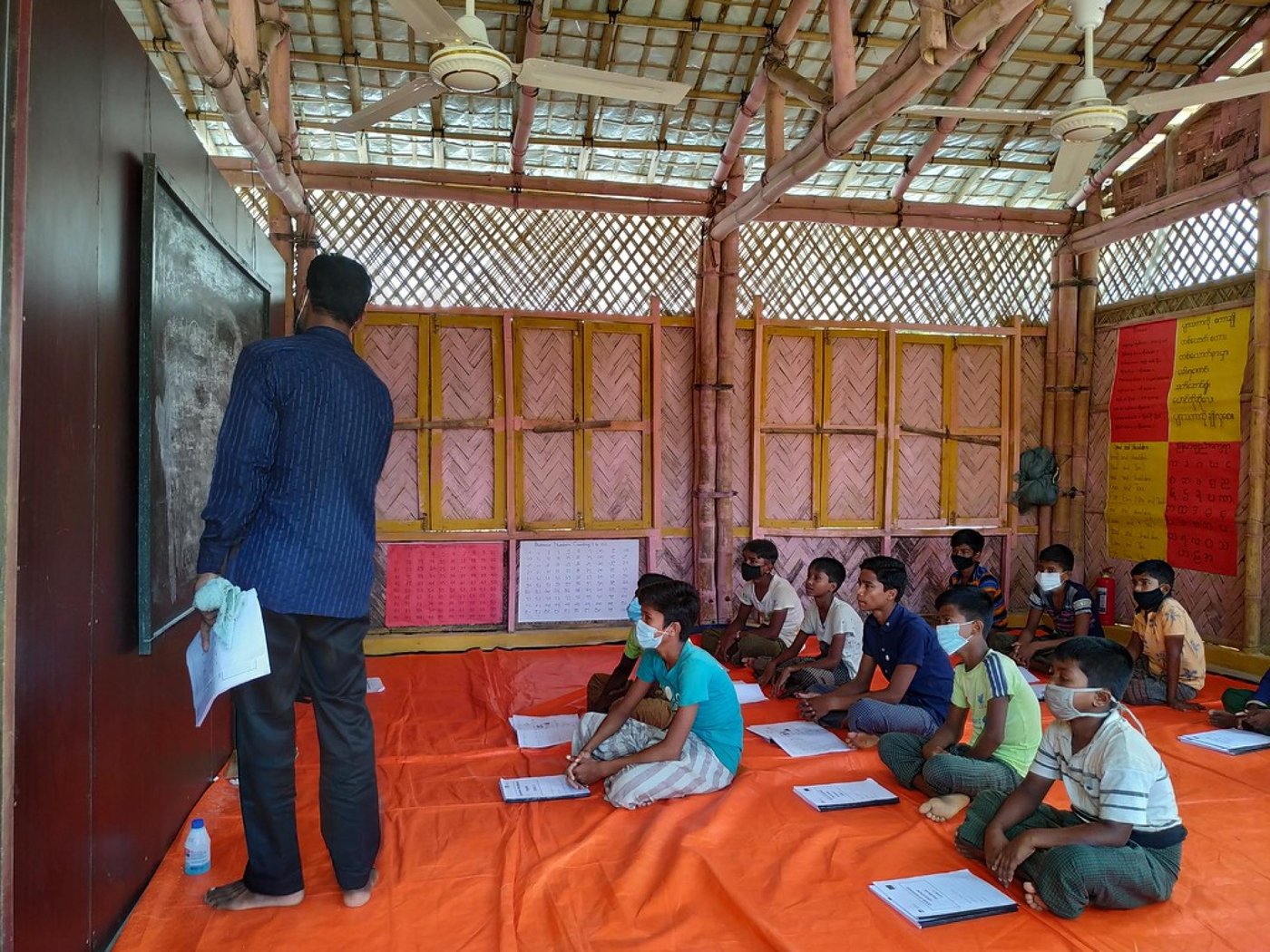
NRC’s education programmes support 13- to 24-year-olds—an age group often overlooked and under-supported in displacement settings. In the Rohingya camps, our vibrant learning centres are hard to miss. The classrooms brim with happy chatter and life. Colourful posters created by students, teachers and learning facilitators line the classroom. Sunlight pours in through windows cut into the bamboo structure.
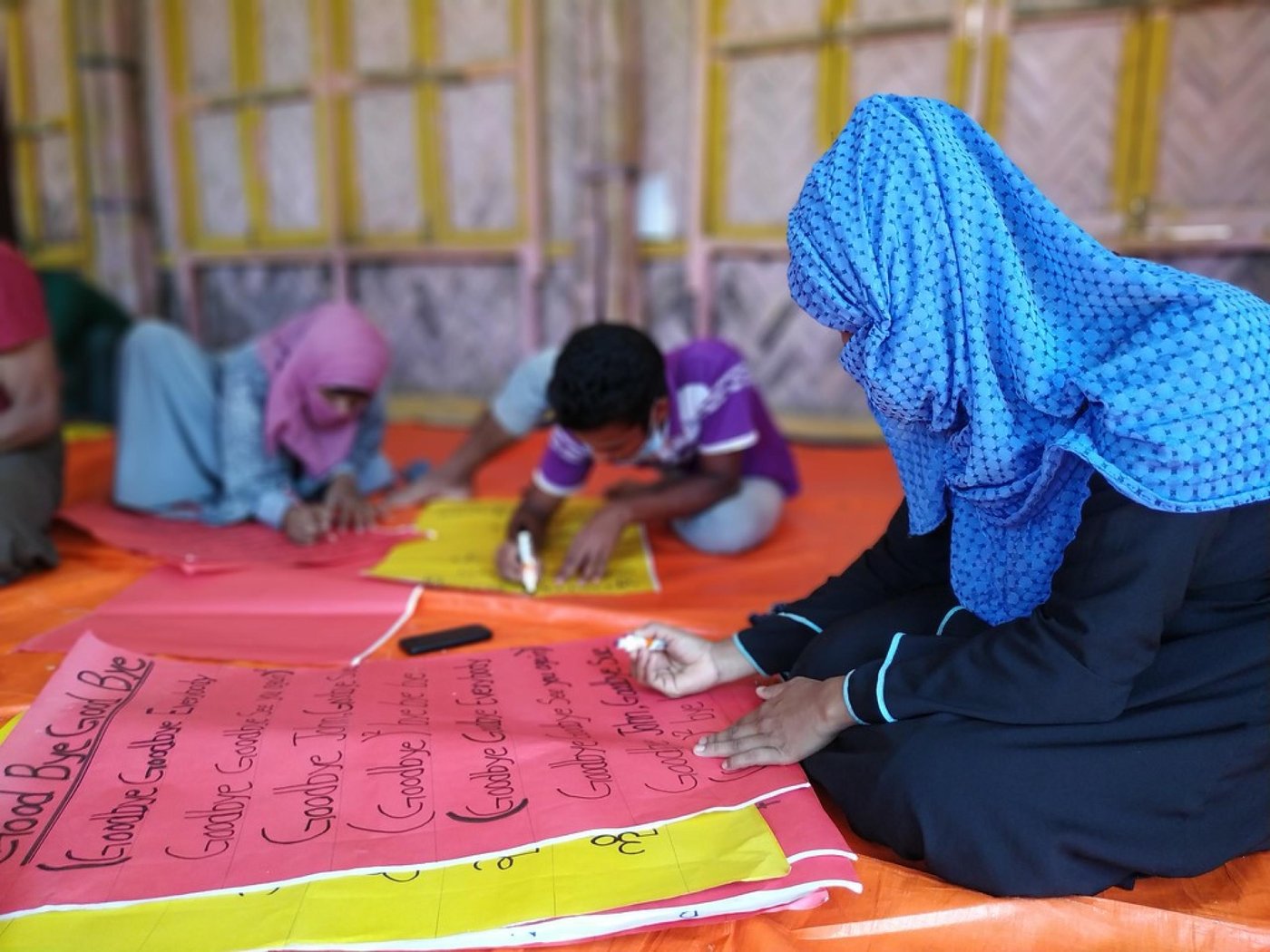
However, challenges remain. Due to the pandemic, we were forced to reduce capacity at the learning centres. But to ensure no child is turned away, we have adopted a shift schedule to reduce the number of students in the classroom at the same time. This has been hugely important for the students who tell us that our centres provide a safe space for them to be children—to dream, learn, laugh, organise a sports match and make friends.

Inclusion in education
Ashom, 14, survived grievous atrocities in Myanmar and has a permanent hearing impairment. In the camps, where alternative language training and hearing equipment remains largely absent, everyday life for Ashom is extra challenging. Despite all the obstacles, he has been able to build a community at our learning centres, relying on gestures and body movement to communicate with peers and teachers. His favourite activity is painting.

Empowering female learners
For women and girls, access to education remains particularly difficult due to challenges related to child marriage and social pressure to remain home. To facilitate increased attendance of women and girls, NRC has a network of community-based female-only learning centres. We have also employed a digital learning model to increase enrolment of women and girls. The signs are promising – despite the challenges, female participation is on the rise.
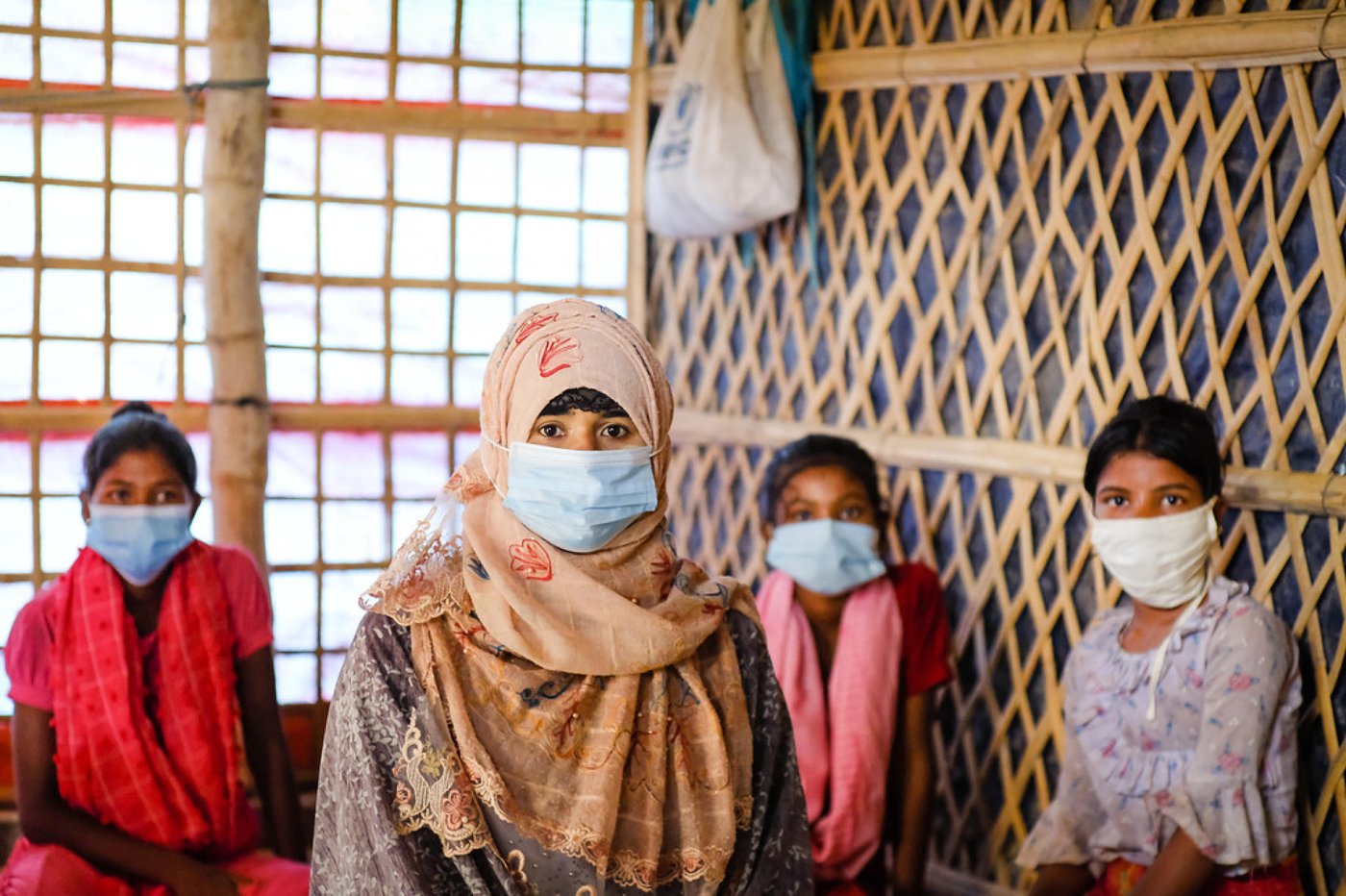
“Education is easier for boys as they don't have to take care of babies,” says Amena, 17, who leaves her daughter at home when she comes to one of our centres.
Amena wants to be able to help her daughter succeed in school as she grows, and hopes she is not deprived of an education like she was.
“It’s hard, but I will keep coming to school,” she says.
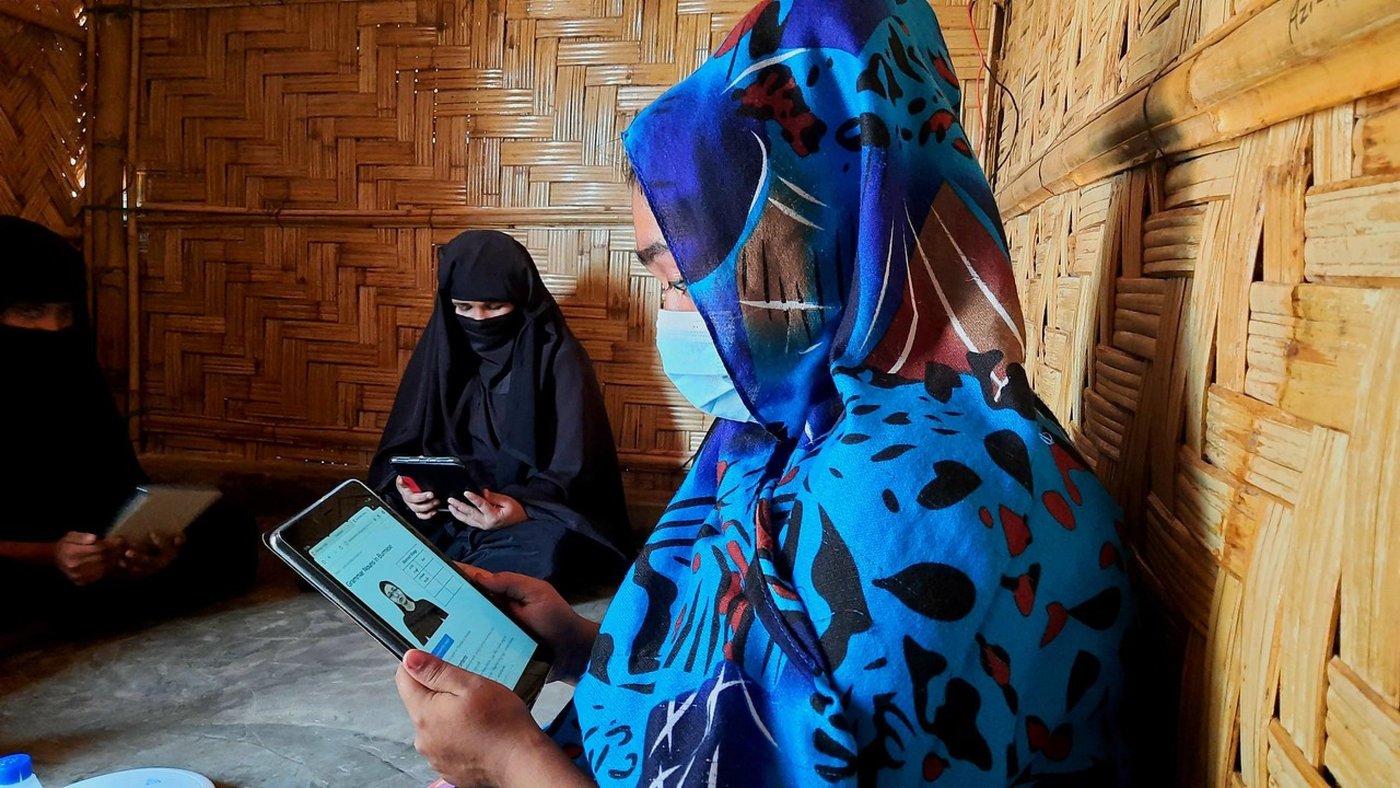
Building life skills
For refugees in Cox’s Bazar, education is the key. Equipped with basic numeracy and literacy skills, our students are able to help their families with monthly budget calculations, communicate with authorities, and perhaps most importantly, tell their own stories. Our learners want to pursue their studies to one day become engineers, doctors, teachers, or pilots.
Transferrable skills are also increasingly important. Our modules include active and healthy living, personal development, communication and leadership skills, and stress management. For Rafiq, 14, the stress management lessons have been particularly important. He has been able to share the breathing exercises with his parents.

The harsh reality
While education helps foster dreams for a brighter future, the reality facing the Rohingya refugee youth is bleak. The refugees are unable to work or pursue formal education in Bangladesh. Although our learning centres provide support, they are not a substitute for durable solutions, including formal schooling and opportunities for higher education for refugee children and youth.
“Education is a powerful tool,” says Aliya Noor, NRC’s education project manager in Bangladesh, “but refugees must be allowed to use the skills they learn in pursuit of a more hopeful future.”
***


